
New strategies for grid management incorporating smart technologies are required. Technological developments lessen the negative effects of gird on the environment, improve market operations, boost dependability, cut expenses, and boost general efficiency. We must employ smart networks at every stage, from consumer appliances to electricity generation, to shift to sustainable energy.
As renewable energy becomes more important, cities face challenges integrating it into their power grids. Smart grid technologies solve these challenges by improving energy management and ensuring a stable electricity supply.
Challenges of integrating into urban grids
Integrating renewable energy into urban grids presents several challenges, particularly with the unpredictable nature of renewable sources like solar and wind. The dense population in metropolitan areas like Delhi, with a peak demand of almost 8000 MW, creates a significant stress on network distribution and transformer substations. A strategic approach is needed to manage these challenges, considering demand-side measures to create an optimal demand curve that renewable and other sources can meet.
Pramod Kumar Singh, Senior Director of Research and Programmes, AEEE, shares an example where he mentions how residential air conditioning is expected to constitute 65-70 per cent of demand by 2030. Smart grid technologies can help mitigate these challenges by using advanced forecasting methods to predict renewable energy generation and demand better, managing demand more effectively, and utilising energy storage systems to store and release excess renewable energy when needed.
Smart grids use advanced control systems to manage and stabilise the grid, ensuring a reliable power supply even with the variability of renewable energy. Encouraging distributed renewable energy sources, such as rooftop solar panels, can reduce the load on central grids and improve energy resilience.
This story is from the July 2024 edition of EPR Magazine (Electrical & Power Review).
Start your 7-day Magzter GOLD free trial to access thousands of curated premium stories, and 9,000+ magazines and newspapers.
Already a subscriber ? Sign In
This story is from the July 2024 edition of EPR Magazine (Electrical & Power Review).
Start your 7-day Magzter GOLD free trial to access thousands of curated premium stories, and 9,000+ magazines and newspapers.
Already a subscriber? Sign In
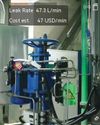
HIKMICRO AI Acoustic Imager enhances industrial efficiency by detecting air leaks
Industry studies suggest that leaks in compressed air systems can account for up to 30 percent of energy waste. Compressed air leaks are often harder to detect than other types of gas leaks because they do not produce noticeable smells or colours.

Driving innovation and expanding capacity to accelerate India's 2030 renewable energy goal
The company has outlined a strategy to expand its manufacturing capabilities in a phased approach to boost solar panel production to 13 GW. This includes preparation to launch a 4 GW TOPCon cell manufacturing plant by FY 2026-27.

By 2040, 49% of electricity will come from RE
According to the REN21 Renewables 2020 Global Status Report, investments in renewable energy projects and programmes totalled US$64.4 billion between 2014 and 2019.
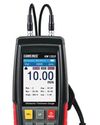
KUSAM-MECO introduces advanced models 'KM -131D' and 'KM 891'
The KM-131D is an ultrasonic thickness gauge model, while the KM 891 is an auto-ranging true RMS digital multimeter with data logging and a PC interface.

Customisable earthing solutions for smart city safety and sustainability
The firm offers a range of earthing compounds, grounding electrodes, and backfill materials, each tailored to optimise performance for different soil conditions, resistivity levels, and environmental factors. Whether it is a smart grid, renewable energy system, or EV charging station, its solutions can ensure safety, efficiency, and longevity.
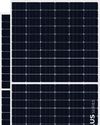
Novasys Greenergy pioneering innovation in solar panel manufacturing
The company's mission is to provide reliable, efficient, and affordable solar energy products for both residential and commercial markets.
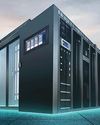
Make buildings and data centres hubs for energy efficiency
Delta modular UPS (Uninterruptible Power Supply) systems are engineered to help achieve maximum energy efficiency and cut operational costs across residential and commercial requirements.

Smart energy management for sustainable smart cities
Renewable energy, efficient power distribution, and advanced storage technologies are at the heart of smart city initiatives, opening the way for greener, more sustainable urban environments.
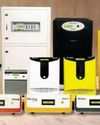
Su-Kam is an added layer of resilience against grid failures
Su-Kam offers lithium-ion battery solutions and advanced ESS (Energy Storage Systems) racks, Which enhance energy storage capacity and offer longer life cycles. Its hybrid inverters can operate both off-grid and on-grid, helping to reduce dependence on the national grid.

Advancements in energy storage boosting reliable and clean power solutions
Lithium-ion batteries, with high energy density and declining costs, power everything from EVs to grid storage. Flow batteries offer long-duration storage ideal for balancing renewable sources, while solid-state batteries, though still in development, promise improved safety and lifespan.